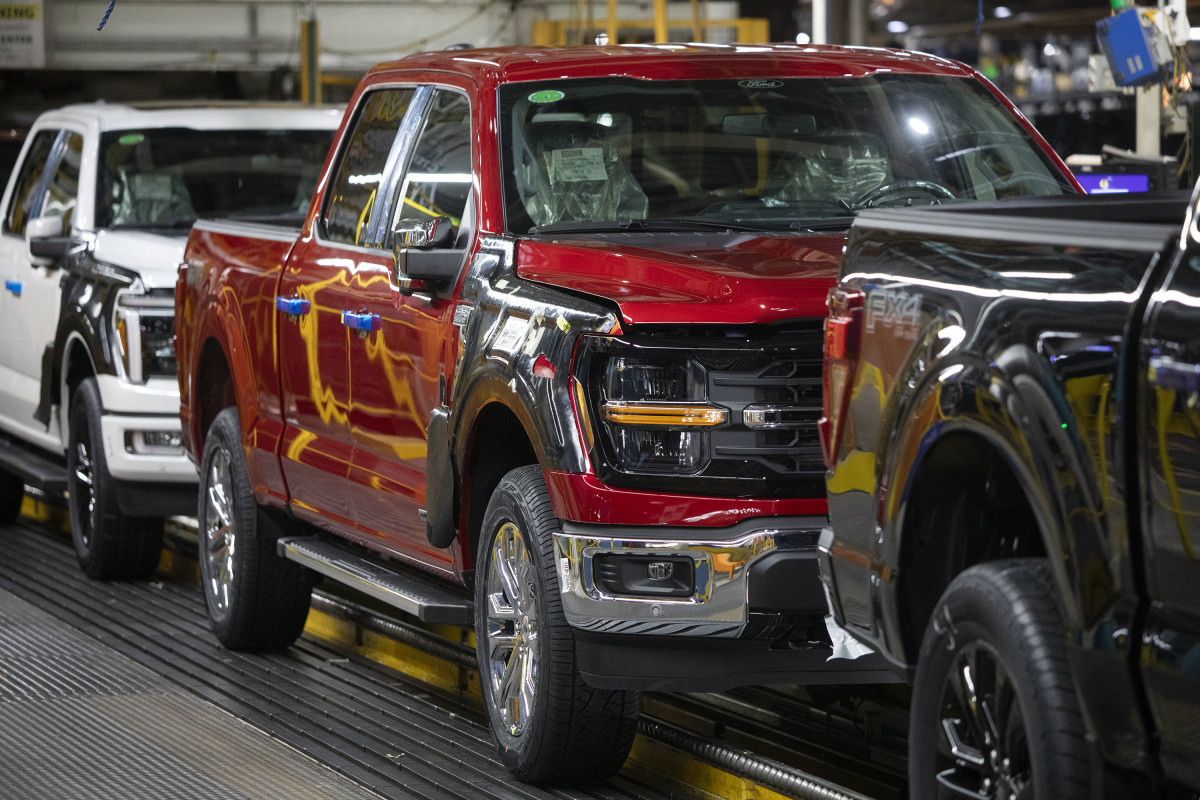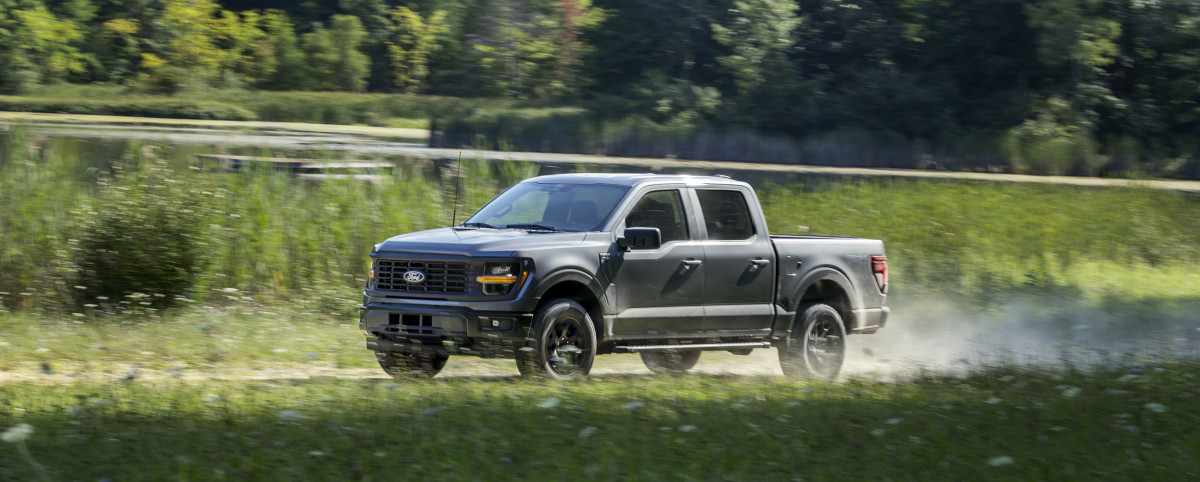Seems Like Wishful Thinking For The Land Of The Kei Car
President Donald Trump on Tuesday said Japan would import massive Ford F-150 pickup trucks following the most recent trade deal between the two countries. That seems unlikely considering Japan’s preference for smaller vehicles, but the statement was typical of a president who’s often cited as being fast and loose with the truth.
“They’re taking our cars,” Trump said in a CNBC phone interview Tuesday. “They’re taking the very beautiful Ford F-150, which does very well. And I’m sure it’ll do well there too, along with other great products.”
This statement came as Japan’s lead trade negotiator, Ryosei Akazawa, traveled to the United States to see that the Trump Administration honored its commitment under the revised trade deal, which lowers tariffs on Japanese automotive imports to the U.S. from 25% and 15%.
Trump’s Trade War Continues
Getty
Trump has been threatening tariffs on most countries since taking office in January, with the auto industry a particular target. While the U.S. and Japan negotiated lower tariffs, they’re still much higher than before and, according to Seeking Alpha, there’s no official timeline for when the lowering of tariffs will take effect. Akazawa is expected to push for an executive order to formally implement the new tariff rates.
In the interview, Trump also reiterated claims that the trade deal includes a $550 billion “signing bonus” from Japan, although Tokyo has reportedly downplayed this, saying only 1-2% of that amount represents direct investment in the U.S. economy, while the rest consists of loans and guarantees from private firms.
Ford Isn’t Happy With Trade Deal
Ford
Japan suddenly deciding to import F-150 trucks seems implausible given Ford CEO Jim Farley’s recent negative comments about the trade deal. Farley said last week that the deal would actually benefit Ford’s Japanese rivals, claiming lower labor costs and favorable exchange rates would make Japan-manufactured vehicles cheaper than Ford’s U.S.-built vehicles with the lower 15% tariff.
Ford has claimed that as much as 80% of its U.S. sales volume is domestically assembled, but that hasn’t helped it avoid the impact of tariffs. During the automaker’s second-quarter earnings call, Farley said Ford faced a tariff bill of $2 billion. Ford is just one of several automakers releasing dour financial results as the tariffs hit—with no relief in sight.